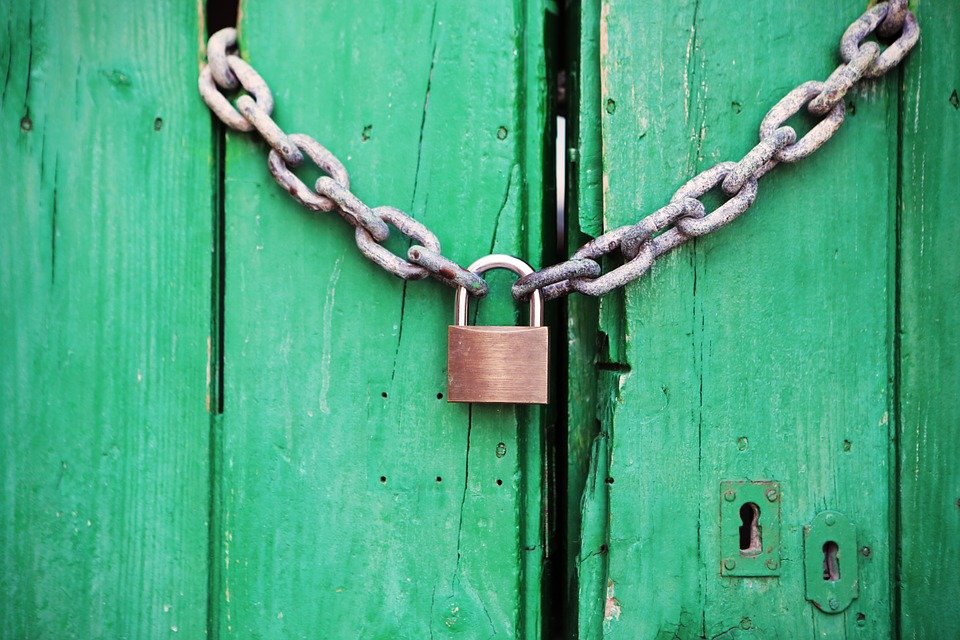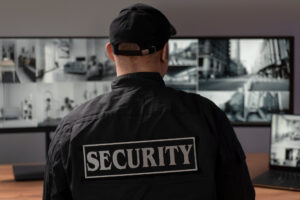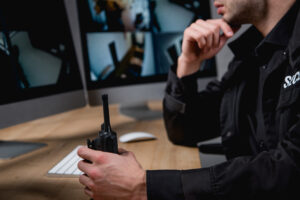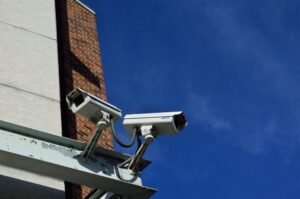Keep Premises, Employees, and Customers Safe With These 7 Essential Security Tips

No business is immune to safety risks – however with cybersecurity, physical security and data security issues to consider, modern businesses need to be proactive in identifying and mitigating potential hazards. Here are seven essential tips for keeping your premises, employees, and data safe.
Hire Nightguards
Having human eyes at all times, especially at night, at your business premises is absolutely essential. Many firms hire a security company for this very reason and often have a night guard on duty. Nightguards can deter crime and help to catch perpetrators in the act, as well as provide an extra level of security for employees working late or alone.

These people are well-trained and ready to protect your business and its employees, day or night. They will patrol around the premises, keeping an eye out for any suspicious activity and reporting anything they see to the authorities.
You should also ask them to give you reports every morning on what happened during their shift, so you can be sure that your security is up to scratch.
Train Your Employees
You need to train your staff in security awareness and safety procedures. This training should include how to identify and respond to potential threats, such as how to identify suspicious behaviour or packages. Employees also need to be aware of their surroundings and what is going on in the business environment, and be trained to challenge someone asking to ‘repair their pc’ and ask for ID. On the telephone, when being asked for passwords or to ‘enter a code’ during an unexpected call, employees should be trained to take a phone number, check with IT and call back if necessary.
Regular training will help keep your employees alert and prepared to handle any security situation that may arise. It can also help create a culture of safety within your organization. Having a safe workplace is not only good for employees, but it is also important for customers and the business premises.
Make sure you have a plan in place for emergencies and incidents. Your employees need to know what to do if there is an active shooter or other emergency situation. They should also know where the emergency exits are located and how to get to them quickly.
Protect Your Software and Data
These days, computer systems store a lot of data – and businesses have a legal duty to keep that information safe and private. Some data can be particularly sensitive, such as:
- Protected health information (PHI)
- Personally identifiable information (PII)
- Financial data
- Intellectual property (IP)
Any organization that deals with personal or sensitive data needs to have the proper security measures in place, both physical (to protect access to the physical systems) and computer security to prevent data from being accessed by unauthorised users. One way to protect your software is by installing an intrusion detection system. This will help monitor your network for any malicious activity. Additionally, you should make sure employees are following company policy and best practices when it comes to protecting sensitive data.
Employees should also be aware of phishing attacks and how to avoid them. In addition, having a written incident response plan can help you quickly mitigate any damage if there is a breach.
Lastly, you need to ensure your customers are protected as well. You can do this by implementing two-factor authentication or using a secure browser extension. Implementing these security measures will help keep your data safe and your business running smoothly.
Install A Surveillance System
Security cameras will ensure that your business premises, employees, and customers are kept safe. It is important to have a surveillance system in place so that you can keep an eye on what is happening around your business at all times. There are many different types of security cameras available on the market and it is important to find one that meets your specific needs.
There are a few factors you will need to take into account when installing a surveillance system. The first one is the size of your property. After that, you need to think about the number of entrances and exits and then determine the type of camera you need. Once you have all those questions answered, think hard about how many cameras you need.
It is also important to make sure that the footage from the security cameras is stored somewhere safe. You may want to consider investing in a DVR or Network Video Recorder to store the footage. This will allow you to access it from anywhere in the world.
Get An Alarm System
Alarms will alert authorities about a break-in or other emergencies. When it comes to business security, getting an alarm system is one of the most important things you can do. Alarms will alert authorities about a break-in or other emergency, which can help keep your premises, employees, and customers safe.
There are a variety of alarm systems available, so be sure to do your research and find the one that’s best for your business. You need to know if something’s wrong as soon as possible, so an alarm system is essential for any business. Make sure you choose one that meets your specific needs.
Keep Sensitive Areas Locked
You need to install strong locks on all entrances and exits to your business, including the loading dock. This will help keep your premises, employees, and customers safe. Make sure you also have a security system in place and use it regularly.
In addition, be sure to keep all sensitive areas locked at all times. This includes the cash register area, the back room, and the stock room. You don’t want anyone gaining unauthorized access to your business’s most valuable assets.
Finally, always keep a close eye on your employees and customers. If you see anything suspicious, report it immediately. The safety of your business depends on it!
Reinforce The Premises
To be sure nobody can enter your business area without permission, you should reinforce the premises. There are a few different ways to do this, but one of the most common is with a fence. Make sure it’s tall enough that nobody can climb over and that it’s sturdy so people can’t break-in. If you have any areas where people could potentially enter without being seen (like an alleyway), make sure those are well-lit and monitored.
Make sure there’s a double authorization on every door and that you have barbed wires or other deterrents on top of the fence.
In addition to reinforcing the premises, you should also have a security protocol in place for your employees. This means that they know what to do if there’s ever an emergency situation and how to properly handle customers and confidential information.

Protecting your business means that you need to keep your goods, buildings, data, employees, and customers safe. That’s why night guards are essential and training your staff is a must. Make sure you protect yourself from cyber attacks and have surveillance as well as an alarm system. Make sure to keep all your sensitive areas locked and reinforce the premises to ensure nobody can enter without you knowing. This will give you peace of mind because every aspect of your business will be secured!





